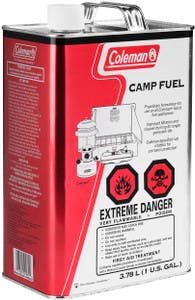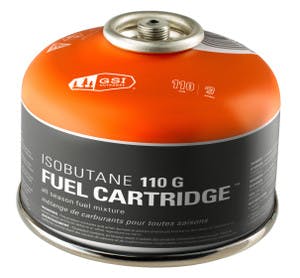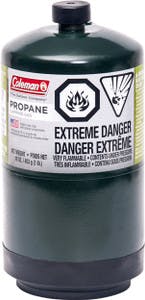Butane gas, propane gas, white gas and camp fuel
- (38)MSR Isopro Fuel 227g Canister$9.95
- (2)FlipFuel Fuel Transfer Device$47.95
- (0)MSR Superfuel White Gas$19.95
- (2)Zippo Lighter Fuel 355ml$8.95
- (15)Jetboil Jetpower 100g Isobutane/Propane Fuel Canister$7.99
- (15)MSR SuperFuel White Gas$19.95
- (0)GSI Butane 227g Fuel Cartridge$14.95
- (0)Jetboil Jetpower 230g Isobutane/Propane Fuel Canister$9.99
- (37)MSR Isopro Fuel 450g Canister$13.95
- (2)GSI Isobutane 230g Fuel Canister$10.95
- (4)Primus SIP Power Gas 230g$9.95
- (15)Coleman 3.78L Stove Fuel$39.95
- (1)GSI Isobutane 450g Fuel Canister$16.95
- (34)MSR Isopro Fuel 110 g Canister$7.95
- (5)Coleman 946ml unit (32fl oz) Stove Fuel$15.95
- (0)Primus SIP Power Gas 450g$13.95
- (0)GSI Isobutane 110 Fuel Canister$8.95
- (2)Coleman Propane Fuel Cylinder 453g$10.95
- ‹
- 1
- ›
Compare (0)
Butane gas and fuel for camp cooking
Butane gas is a widely used fuel for camping stoves, known for its lightweight canisters and easy-to-use design. It’s often sold in pre-pressurized containers with self-sealing Lindal valves, which makes setup and teardown quick and mess-free. These canisters are compatible with most screw-on backpacking stoves, offering a simple solution for cooking outdoors without the fuss of liquid fuel systems. MEC carries several fuel brands including GSI, MSR, Jetboil and more.
Using butane
Butane performs best in mild to warm weather. Because its vapor pressure drops in colder temperatures, it’s not the best choice for winter camping or alpine conditions. Below freezing, the fuel can struggle to maintain pressure, which can lead to weak flames or difficulty igniting. For summer weekends, car camping or fair-weather backpacking trips, though, butane is a reliable and convenient fuel.
Butane fuel options
At MEC, you’ll find a variety of butane and isobutane-propane blends. These canisters come in several sizes, typically 110g, 230g and 450g. The right size depends on your trip length and how much cooking you’ll be doing. For example, a solo overnight hike may only need one 110g canister, while longer backcountry treks might require a larger size or a spare.
Safety and sustainability
While butane is easy to use, it comes in single-use metal canisters. MEC offers recycling tools like the Jetboil CrunchIt, which helps you safely puncture and recycle used canisters. Be sure to store butane canisters in cool, shaded places, and follow safety instructions when operating your stove—especially around tents, shelters or open flames.
Butane fuel is a top choice for campers seeking compact, no-fuss cooking solutions. It doesn’t require priming or maintenance and pairs well with efficient stoves for boiling water or cooking simple meals outdoors. While it’s not ideal for extreme conditions, it’s perfect for everyday outdoor adventures like frontcountry camping or weekend hikes where convenience and packability matter most.
Frequently asked questions
Is butane fuel safe for camping?
Yes, butane fuel is safe for camping when used as directed. Always follow the manufacturer’s instructions, use the canister with compatible stoves, and keep it away from open flames when connecting or disconnecting. Use in well-ventilated areas and store canisters in a cool, dry place, away from direct sunlight or extreme heat.
Can I use butane in cold weather?
Butane is less effective in cold weather because it has a lower vapor pressure than propane or isobutane-propane blends. Below freezing, it may not vaporize properly, leading to weak or no flame. For winter conditions, choose fuel blends designed for low temperatures or use liquid fuel stoves that perform better in the cold.
How long does a butane canister last?
The burn time of a butane canister depends on its size and how high you run your stove. As a rough guide, a 230g canister will typically last for around one to three hours of cooking time. For short weekend trips, one canister may be enough, but bring a spare for longer outings or if you're cooking multiple meals each day.
Butane gas buyer’s guide
When selecting fuel for your camping stove, understanding your needs and environment is key. Butane canisters are a popular choice for campers and backpackers because they’re lightweight, easy to use and ideal for fair-weather conditions. They typically come in compact, self-sealing canisters that connect directly to portable stoves, making them convenient for quick setups and simple camp cooking.
The first step is to check stove compatibility. Some stoves are designed specifically for butane or isobutane canisters, while others require different fuel types, like white gas or propane. Make sure your stove model matches the fuel type you're purchasing—mismatched systems can be inefficient or unsafe.
Next, consider your trip conditions. Butane performs best in moderate temperatures, typically above 5°C. If you're planning to camp in cold or high-altitude environments, consider fuel blends with isobutane or propane mixed in. These blends maintain better pressure in lower temperatures and help keep your stove running reliably.


















